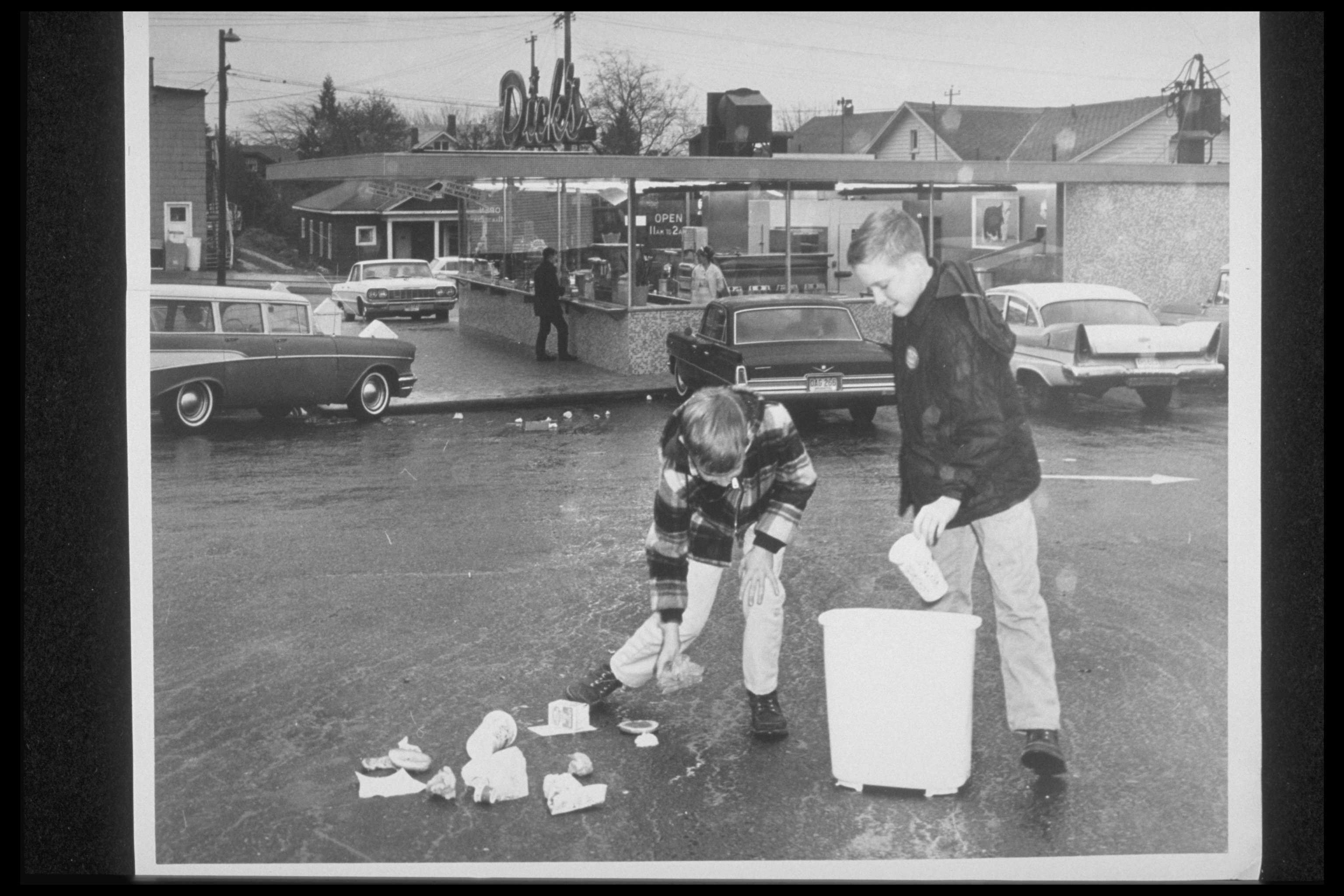Like countless other Seattleites, I’ve lived part of my life within two blocks of a Dick’s Drive-In.
In my case it was the Wallingford location.
Living near a Dick’s carries a number of benefits. When the wind was right, the smell of burger and ketchup would waft into my place, replacing the equally divine scent of Lake Union. And it was impossible not to cross paths with that walk-up counter as I stumbled home after too many drinks poured by Johnny at Moon Temple.
But the fact that Dick’s was a take-out restaurant favored by drunks like me could carry a slightly negative dividend: Litter. While the neighborhood crows could be downright rhapsodic about finding a foil burger wrapper with American cheese still stuck to it, for neighbors it could be a little gross.
And yet after hundreds of Dick’s Specials, it was that litter that left the strongest impression of the business founded and run by Dick Spady, who died this week at 92.
On certain weekend mornings, like ghosts of bad-heath-decisions past, I would look out my window to see a college kid in the crisp white-and-orange Dick’s uniform walking down the sidewalk. Showing up for work? No, he was walking away from the restaurant. He would have a trash bag in hand. His charge, it would become clear from watching, was to find any and all Dick’s-associated trash left behind by late-night revelers and pick it up (he’d grab other garbage if he saw it as well).
This, to me, came to represent quintessential Dick’s, going just a little beyond what might be expected of a fast-food joint known best for being cheap: Slightly higher wages, far better benefits, and a more thoughtful approach to how its operation was interacting with those around it.
Spady, his granddaughter Jasmine Donovan told us, wanted his restaurants to be “all about being part of the community and taking care of the community and our customers. One of the small ways we did that was to pick up the trash that we would be in any way tied to.”
Way back, Boy Scouts would pick up trash in exchange for burgers and badges, Donovan said.
Now employees are responsible for the work, and do sweeps of surrounding blocks “as often as needed.”
“Since we’re a walk up restaurant, we just wanted to do our part,” Donovan says.
RIP Dick Spady. May the crows forgive your anti-litter ways.
dperson@seattleweekly.com








